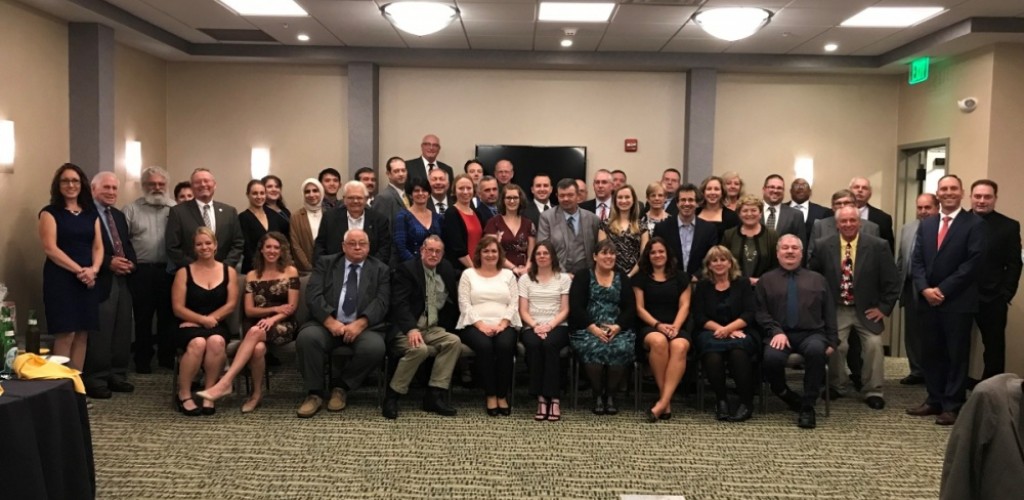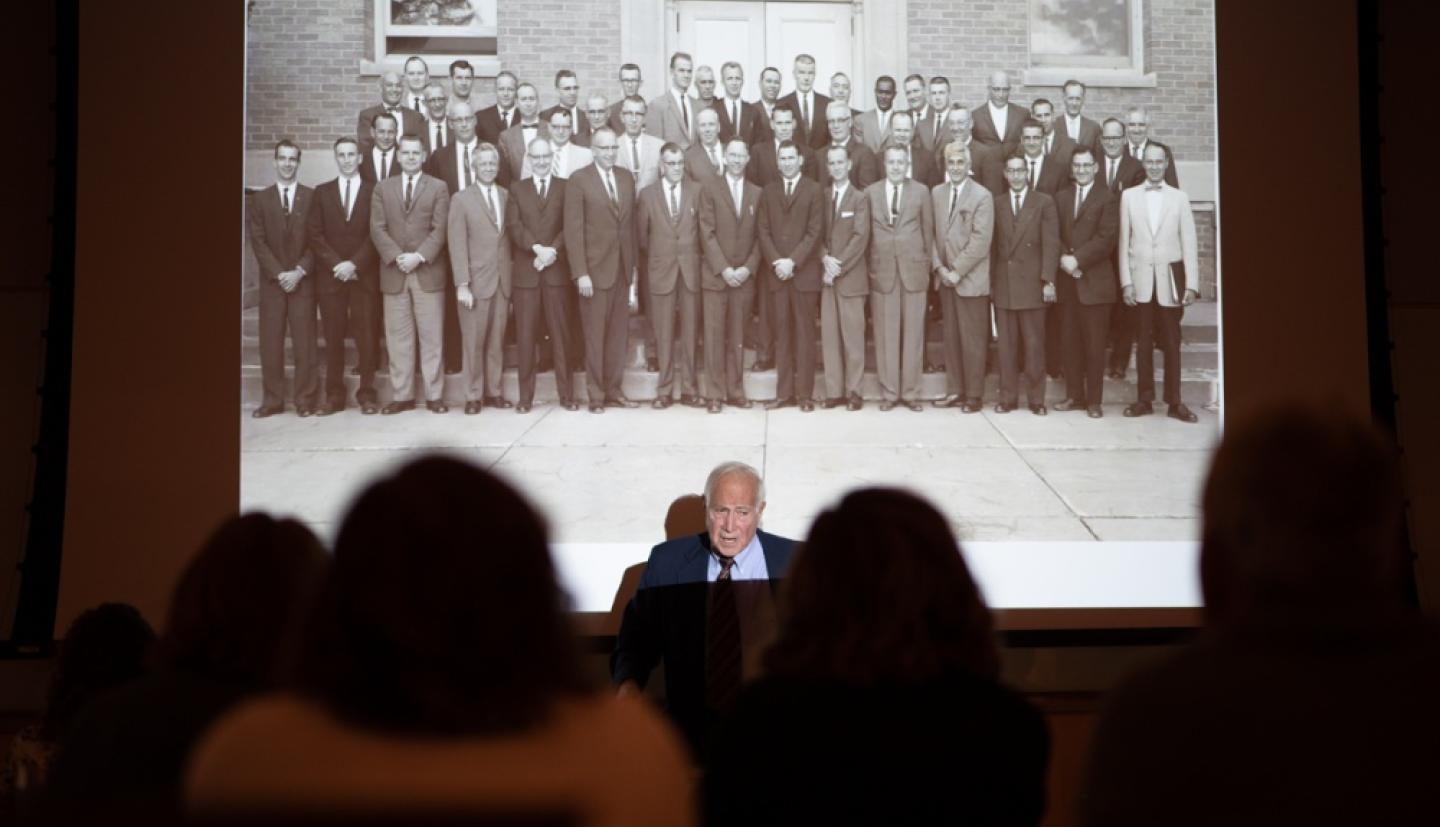Nearly 15 billion pounds of milk were produced in New York in 2017. Helping keep dairy products safe and of the highest quality has been the work of state milk inspectors.
This week marks a 50-year milestone for a long-standing and important partnership between the College of Agriculture and Life Sciences and the New York State Department of Agriculture and Markets (NYSDAM). Once a year, dairy inspectors from across the state come to Cornell for standardized training through the Certified Milk Inspectors Program. More than 45 inspectors came to Cornell Oct. 1-4 for the latest in raw milk quality and safety standards and to learn the specific regulatory and inspection requirements dairy producers and processors need to meet the Grade “A” seal of approval.
When it began in the 1960s, the innovative seminar started an important shift in New York, said David K. Bandler '55, MPS '71, professor emeritus in Cornell’s Department of Food Science. Bandler, who was at Cornell for the program’s inception, said the partnership has changed the role of inspectors from one of enforcement to “compliance assistance,” and helped modernize the role the inspectors played in the industry.
“In the beginning they were doing their job by finding violations and assessing fines,” said Bandler. “But these specialists had invaluable expertise as they went from plant to plant. They learned from their trainings at Cornell that they could help these dairy producers and processors get into compliance, rather than forcing them by fines.”
Inspectors are responsible for inspecting each fluid, manufacturing and wholesale frozen dessert plant in New York every 90-days. Among other duties, they enforce milk sanitation requirements and take monthly sampling of milk and milk products to ensure safety and quality.
The job of the milk inspector has shifted as the New York dairy industry has become more technology driven and increasingly focused on high-value dairy products. Since the 1960s, milk production in New York has increased nearly 40 percent despite the number of dairy cows in the state decreasing from 1.2 million to just over 620,000 today.
Milk inspectors have played a pivotal role in helping producers and processors diversify their product, according to Casey McCue, director of milk control and dairy services at NYSDAM.
Since the inception of the Milk Inspectors Program there has been a marked shift from fluid milk to value-added dairy products like cheeses and yogurt. Artisanal cheese production has soared from 118 million pounds in 1963 to 817 million pounds in 2017. The boom in yogurt has been even greater. A rise in Greek yogurt popularity has benefited New York, which now produces more than 700 million pounds compared to just 22 million pounds in 1963.
Milk inspectors have been on the frontline of this shift as they work with producers and processors to be innovative while maintaining a reliable quality and safety for consumers.
It’s the type of work that would have been impossible a half-century ago, according to Bandler. Today, thanks to standardized training and a focus on helping dairy producers and processors get into compliance, dairy inspectors are an important link to the success of the dairy industry in New York, he said.
McCue credited Cornell and its world-class faculty and facilities for its strong partnership over the decades in modernizing the skills of inspectors.
“This relationship is so critical to what we do every day and to our vibrant dairy industry,” said McCue. “This long-standing relationship between the New York State Department of Agriculture and Markets and Cornell is a model for other states to follow. We are fortunate to have access to a premier Land-Grant university like Cornell, especially the deep bench of food science expertise it brings to the field.”






